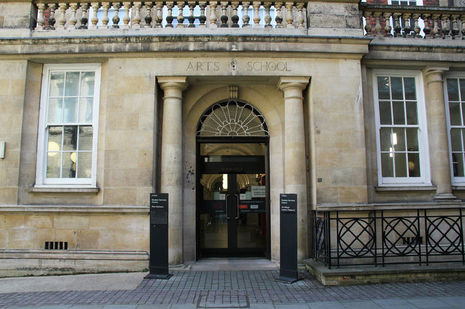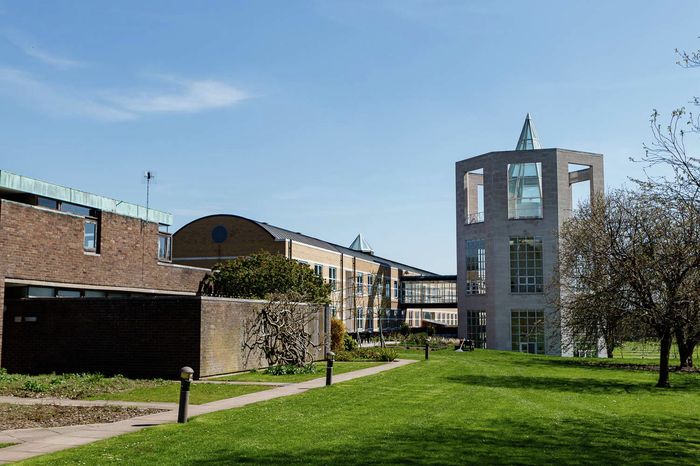Uni may allow resits for first time
The proposed changes would only allow finalists to be re-assesed

The University of Cambridge is considering the introduction of exam resits for the first time ever, in a bid to bring their assessment system in line with the rest of the Higher Education sector.
The University’s Education Committee has proposed changes to the exam system for students affected by “illness or grave cause” when taking exams, allowing them to be re-assessed in some circumstances.
This comes in spite of a recent internal report from the University’s teaching departments and Colleges that showed “little appetite” for resits, even for students facing “exceptional circumstances”.
Re-assessments would only be available to final-year students, and would only be offered if more than 25% of a student’s exams were disrupted. If an exam worth less than 25% of a student’s grade was affected, this exam would not count towards their overall degree classification.
The mode of assessments will be up to the subject department, and could take the form of a spoken assessment, portfolio of essays, or a resit. The proposals are set to be voted on in the coming weeks, and would be introduced in the next academic year (2025-26).
Resits are typically only allowed for those studying for a professional qualification, such as vets or medics. Some other courses, such as engineering, are known to force students out upon failing first or second-year examinations.
The new measures will not allow non-finalists resits, but students may be permitted to progress into final year examinations if they failed in exceptional circumstances.
Cambridge is virtually alone in not having provisions for resits, with other Russell Group Universities including Oxford offering them as standard. While introducing resits, the proposals still remain stricter than other UK Universities.
The University has been under significant pressure from the Office of the Independent Adjudicator for Higher Education – the independent watchdog for higher education standards – to introduce resits “as a matter of standard practice”.
Following this, Cambridge launched an internal consultation on the introduction of resits, with the majority Colleges and departments opposing their introduction. The consultation expressed concerns that the number of resits “would grow” as more students fell back on them, and damage Cambridge’s academic reputation.
The report also raised concerns that the introduction of resits would also put an unfair burden on the University’s support staff by re-running exams in the summer.
The proposed changes have been welcomed by the Cambridge Student Union’s Undergraduate President Sarah Anderson, who stated that she was “pleased to support the recommendations of the General Board’s report, which will ensure that almost all students can leave Cambridge with a degree that truly reflects their hard work. The ability to resit exams is standard at universities across the UK, and we have long lagged behind. These changes are especially important for disabled students, who live in fear that a flare-up at the wrong time could prevent them from receiving a grade that reflects their true ability”.
She added: “I also welcome the simplification of progression options for non-finalists - allowing them to move forward where appropriate evidence has been provided, without the additional stress of further assessment. This concern was highlighted to me early on in my work on this issue, which was my main manifesto promise. Looking ahead, the University must provide clear guidance on the evidence required for allowances and think ambitiously about how best to support non-finalists who are left without a grade when applying for internships.”
The introduction of resits also comes following Cambridge’s controversial decision to scrap its exams ranking system, which prompted accusations of pandering to “egalitarian dogmatism” from Douglas Hedley, a theology professor.
Under new regulations, students will no longer be told where they placed among their peers in end-of-year examinations – a tradition that had existed for over 200 years.
Others have even left Cambridge altogether due to the loosening of exam regulations. David Butterfield, a former classics professor, resigned his position over the “infantilisation” of its educational programme last year.
These measures were welcomed by Pro-Vice Chancellor for education Bhaskar Vira, who stated that they would help “reduce often self-imposed competitive pressure” on students. This also came after a University task force claimed that Cambridge had a “culture of overwork” that was negatively affecting mental health and wellbeing last year.
The University of Cambridge was contacted for comment
 News / Cambridge launches plan to bridge ‘town and gown’ divide27 October 2025
News / Cambridge launches plan to bridge ‘town and gown’ divide27 October 2025 News / Uni offers students £55k in payouts31 October 2025
News / Uni offers students £55k in payouts31 October 2025 News / Students launch women’s society excluding trans women31 October 2025
News / Students launch women’s society excluding trans women31 October 2025 News / College rowing captains narrowly vote to exclude trans women31 October 2025
News / College rowing captains narrowly vote to exclude trans women31 October 2025 Arts / Reflections on the Booker Prize 202528 October 2025
Arts / Reflections on the Booker Prize 202528 October 2025










